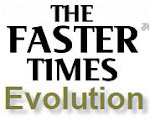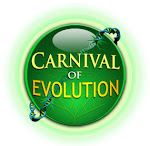Wow… I generally tend to stick to narrative posts discussing natural history, but in light of a short commentary that I just read from The Society for the Study of Evolution’s journal, I feel obligated to throw a couple of reckless comments onto the web…
The article in point, ADAPTIONISM—30 YEARS AFTER GOULD AND LEWONTIN, was written by Rasmus Nielsen of the University of Copenhagen and to the best of my interpretative ability seems to be making a plea to so called ‘adaptationists’ to reconsider their errant ways..?
Apparently, the author is under the impression that the world’s evolutionary biologists can be dichotomously classified as either ‘adaptationists’ or ‘pluarlists.’ And further, that those classified in the former category should seek reincarnation as enlightened members of the latter.
The commentary’s argument begins (predictably) with Stephen J. Gould and Richard C. Lewontin’s ‘The Spandrels of San Marco,’ an article originally published by the Royal Society in 1979. The broad point of the original Gould piece was to encourage scientists to look beyond natural selection as the sole process of change and to instead consider organisms as complex entities influenced by a myriad of evolutionary forces. In short, to think of the organism’s evolutionary history as being an emergent property derived from its whole, not one measured through the summing of its individual traits. This cautionary imperative is certainly as valid today as it was back in ’79 and it should be heeded; however, it isn’t by any means novel, nor does it say anything in regards to the reality of research – it is simply a warning to be cautious of personal and professional bias.
The Nielsen article moves from The Spandrels to contemporary times in order to assess what valuable lessons have been gleaned from that momentous (?) work of 30-years past. Unfortunately for the field, in conducting this assessment it becomes blatantly apparent that the Gouldian forewarning has fallen on deaf ears…
“…although Gould and Lewontin’s paper did not spell the end to adaptationist storytelling, it radically increased the awareness among evolutionary biologists about the pitfalls of adaptationism.”
Whew... What a relief; but what does that mean exactly?
“Evolutionary biologists are today, arguably, much more reluctant to invent adaptive stories without direct evidence for natural selection acting on the traits in question. We still regularly encounter very naive adaptive stories, particularly about human behavior, but rarely in journals such as Evolution or other related journals with high standards…”
‘Rare’ in this case is good – I think? I’m so glad we have The Society for the Study of Evolution’s journal to guide our path!
What should we do to remain of wholesome purity; what should we do to keep the path?
“…we must rely on inferences regarding past events by observing scant fossil evidence and the current pattern of genetic and phenotypic variation. We may be able to detect selection, but we may never be able to directly determine which traits selection acted on.”
So, we can see selection, but our ignorance blinds us to the characteristics driving that selection…
“Although the presence of selection acting on genes underlying a phenotypic trait of interest does help support adaptive stories, it does not establish that selection acted directly on the specific trait of interest.”
Because,
“[m]ost genes have pleiotropic effects and establishing the direct cause of selection in an organism such as humans might in most cases be difficult or impossible.”
That’s a reasonable statement, but couldn’t the before-mentioned inferences guide the ‘adaptationist’s’ filthy lust for storytelling? What prophylactics are available in the event that an adaptationist fails to maintain self-control?
“…speculation… must be done acknowledging that no simple experiment or functional data can falsify or “validate” historical adaptive hypotheses.”
Geee, thanks for the heads-up, I’m going to spread the good-word!
“And in communicating with our peers, and with the popular press in particular, we may individually, and as a scientific field, benefit from understanding the societal impact of the statements we make.”
Or, on the other hand, maybe not…
In closing, I have difficulty believing that radical adaptationists are running rampant in evolutionary biology. I can’t think of a single practicing biologist, in academia or otherwise, that doesn’t consider the impact of drifting allelic frequencies and other possible influences outside the scope of natural selection. As far as the relative importance, or weight, granted to such alternative processes in determining an organism’s evolutionary path, that isn’t a question of individual preference. Rather it’s something that is assessed quantitatively through experimentation and study.
I can’t help but wonder if the entire “adaptationist Vs pluralist” debate is an artificial construct intentionally designed for generating publicity. Judging by this post and similar arguments had at Sandwalk it seems to work…
Nielsen, R. (2009). ADAPTIONISM-30 YEARS AFTER GOULD AND LEWONTIN Evolution, 63 (10), 2487-2490 DOI: 10.1111/j.1558-5646.2009.00799.x
Readers’ wildlife photos
1 hour ago





























I'm beginning to notice a bit of a chasm between field biologists/naturalists and labrats/molecular biologists et al. RE adaptationsim, and how much is too much. I've encountered vicious retaliations against more neutral views that went something like 'Look at all these wonderful creatures around us and their amazing characters, and I will INSIST on viewing those characters as adaptations!' (that was by a science -teacher-). In a way, that's little different from our favourite Argument from Design. In fact, I see too many eerie parallels between 'hyperadaptationism' and, may I say, creationism - 'evolutionary creationism' if you will. It's as if evolution has some purpose. Now you probably don't believe any of that, but you'd be surprised how many people subconsciously (or consciously) do. Even in professional circles.
ReplyDeleteAdaptation is of course still necessary, and no one's arguing against selection, both positive and negative. We just argue that not -everything-, by FAR, came through adaptive processes. This becomes more apparent on the molecular/cellular and microbial levels, where it becomes easier to trace things. Take RNA editing in trypanosomes, for example -- ~500 proteins required for -correcting- some screwed up genes that all the other eukaryotes have in highly conserved forms, and require only your usual transcription-translation machinery to express. People have thought long and hard about what sort of advantage that may confer, and many an elaborate story have been crafted.
But if you just let go of adaptation for 5min, it becomes obvious how this ridiculous system could have arised through neutral ways -- namely, a slightly enhanced editing mechanism (which in itself could be adaptive), allows for the gene to accumulate errors, which are then corrected -- thereby fixing that enhanced editing mechanism (or the lineage is gone). A few more proteins get involved, etc (and being a parasite does weird stuff to one's evolutionary processes, which probably accelarated this process), and eventually you end up with this bizzare system for transcribing something like a dozen or two essential genes. Again, other eukaryotes just use polymerase (more or less ;-))
Gould WAS a little extreme, perhaps, but the issue has been highly polarised, a little too much. In my opinion, however, the truth probably lies a little bit closer to Gould than, say, Dawkins, on this topic.
tl;dr - the null hypothesis must always be neutral. If a neutral explanation fails, THEN you invoke adaptation. Too many people skip the null and head straight for the just-so stories.
You may find Lynch 2007 PNAS interesting ;-)
Cheers,
-Psi-
Psi,
ReplyDeleteI’d fully agree that there’s a philosophical ‘chasm’ between field biologists and those scientists working in lab-like settings, and I’m certain that the expanse of the chasm is sufficient to hold differences in perspective for many aspects of research – well beyond just the adaptationism Vs pluralism debate. That said, your experiences in observing the chasm have evidently been different than mine. I certainly don’t recall any confrontations rising to the level of ‘vicious retaliations’.
In regards to adaptationism, sure, I witness the occasional lively debate and hear sporadic inapt remarks, but nothing anymore malicious than would be expected for people with opposing views and a vested interest in learning.
Respectfully, I think that the parallels you see between ‘hyperadaptationism’ and creationism may be a bit of a stretch… If the analogy that you’re suggesting is that both are derived from some type of prefabricated notion and both are maintained despite the absence of evidence, I’d say that you’re only halfway there. Yes, some biologists may try to conform new observations to ideas they already hold to be true; but no, even if their preconceived notions are shown to be erroneous in a given case, those preconceived notions (i.e. adaptationism) still have some grounding in established science. As you say, no one is denying the occurrence of adaptation and selection, what is in question are the relative contributions of adaptation and randomness in the overall evolutionary scheme. This contrasts strongly with creationism, which has no grounding in science – in any proportion.
I have always been a big Gould fan; I’ve read the majority of his professional publications and all of his popular works. Though, he did have an inclination for hyperbole and a zeal for intellectual flamboyancy. He tended to over inflate some ideas a bit…
We are of one mind in regards to the debate being ‘highly polarized,’ but my opinion differs from yours with respect to the evolutionary contribution provided by natural selection. As most anyone could tell from reading the posts at this blog site, I award the lion’s share of influence to selection. I recognize and acknowledge the substantial contributions of drift; however in my assessments of the natural world and the current science, evolutionary change demonstrates a clear leaning towards selection. I’m not sure if this makes me an ‘adaptationist,’ a ‘pluralist,’ a ‘70-30 adaptationist,’ or something altogether different. And frankly, I have trouble seeing how such labels have any real meaning at all - which is precisely why I wrote this post in the first place.
Thanks for stopping by!
Johnny,
ReplyDeleteJust to clarify, the vicious confrontations were with a teacher, not a scientist (yet). And it was online, which changes conversational dynamics a bit. The worst kind of response I've heard thus far on the academic side goes alone the lines of "I am X-ologist, so I don't care about your Y." Which kind of murders any hope for an intellectually stimulating discussion.
I'm well aware that my 'evolutionary creationism' analogy is quite a hyperbole -- that's why I do it. Eerily enough, however, there ARE cases when it's not a hyperbole, and that's kinda scary. Something approaching this extreme would be some of Dawkin's statements, wherein he seems to insist neutral evolution is of no intrest to anyone but "pedantic" molecular biologists (I could dig up a couple links if evidence is needed).
Problem is, he's rather high-profile in the public sphere, so many people are only exposed to this extreme adaptationist interpretation of everything, which, I argue, seriously warps their understanding of how evolution actually works. These views also percolate into non-evolutionary fields in biology (apparently, you can somehow do biology without properly understanding and integrating evolutionary theory...), where chaos happens. Such as people making shit up about obviously ridiculous (and frankly dumb) 'adaptations'. These people are also likely to worship the "crown model" of eukaryotic evolution, as well as the 'ladder view', with evolution's purpose being to evolve lowly bacteria into enlightened homonids (Simon Conway Morris seems to subscribe to something similar...)
Where I'm heading is that this is also a bit of a philosophical topic -- is life actually striving for perfection (or anything), or is life just...there? Is there really a purpose? Etc. To me, hyperadaptationism feels very similar to those 'searches for higher purpose'; I disagree with Dennett (1995) where evolutionary biologists must take on an intentionalist stance (assuming things happen for a purpose, or so, if you excuse my horrible butchering of philosophy >_> ), as it is unparsimonious to assume purpose (which adaptations are in sloppier interpretations) for anything unless the nihilistic model breaks down somewhere. Of which someone has yet to convince me (maybe I am missing something, who knows) Dennet is also quite the adaptationist.
Even assuming that some form of purpose exists, or using a more rigorous definition of adaptation, it still does no harm to automatically assume neutrality at first glance, and THEN modifying the story if neutral models fail. To use a crude example, while wings could be formed, in theory, by neutral stochastic means, it is highly unlikely (and mathematics and organismal biology can show that) -- thus we postulate some adaptive value to them. In the case of aggregation of bacteria into complex shapes on petri dishes (swarming), it has been shown a few times how inorganic matter could also form similar complex patterns naturally (eg. snowflakes!). Thus, until something is REALLY unlikely about a spontaneous self-organising aggregation into these beautiful forms, we must hold back from adaptive explanations, as appealing as they may be.
Perhaps on your scale of things (large metazoa), visible structures tend to involve a lot more mechanisms to happen, and are thus less likely to self-organise via neutral means. Thus, perhaps adaptationist explanations do make sense in more contexts than on the microbial/unicellular scale. Perhaps. We still have no freaking clue how development happens, to be honest. At least in plants -- and I imagine it's even worse among metazoa... But the vast majority (>99%) of life is microbial, and in the grand scheme of things, that's what really matters ;-)
And I really do need to catch up on Gould. *glances at reading pile* oh no...
Sorry for loooong comment... >_>
Cheers,
-Psi-
Psi,
ReplyDelete“…and in the grand scheme of things, that's what really matters.” - Nice! (lol)
I think that I’m grasping your points, and to a large extent we agree.
In the case of Dawkins, Dennett, Gould, etc… All of these guys have made an investment in popularizing and educating the general public on issues of evolutionary biology. In order to make the subject both interesting and more easily understood, they utilize techniques that simplify and characterize complex processes. If a member of the public desires to improve their understanding of biology they would be doing themselves a service by reading any of these authors; but, by reading popularized and simplified science they won’t be getting the whole picture. Now, if someone wants to have the ‘whole picture,’ as opposed to reading popular works the only serious option is to take formal training in the subjects at a university.
Metazoans, although not constituting a majority standing, do have a distinct advantage over bacteria in regards to the teaching and popularizing of evolution because their scale and visibility have made them familiar – they make excellent visual aids.
We all make simplifications for the purpose of clarity or time efficiency. One of the more common tools used (incessantly by me) is personification. When talking or writing about nature/science, many people infer human-like cognition to organisms (and even inorganic materials) that lack the capacity to contemplate and consider their environment. Describing purely mechanistic dynamics in terms of a conscious decision making processes inevitably creates misunderstandings; but this is the cost of doing business. We should all strive to keep it at a minimum, but personification is non-the-less one of several important communication devices that results in a net positive improvement in understanding.
Further, assumptions are made all the time. For example, in the wing example you gave above, couldn’t an argument be made for the wing not being the product of a naturally selected adaptation? Probably so… The threshold that you have for classifying something as an adaptation has been met, so you think of it as such. Your threshold is probably higher than mine, because you have more training and experience in the field of molecular biology than I do, whereas the bulk of my understanding has accumulated through study of a larger scaled world. So in regards to the wing, ultimately we’re talking about probabilities; and until there’s some formally established value for assignment of certainty, your ‘probable,’ is my ‘highly likely’ and it could very well be someone else’s ‘improbable’.
As said previously, for most any example of evolution (at any scale) there is a debate that could be had as to the relative contributions of selection and randomness. So, in my assessment the public/popular debate is more semantic than anything else – it’s artificial, ungrounded and a detriment to the popularizing process.
In regards to the ‘true’ contributions of the two processes, they’ll differ for any given example and should only be determined through research and the peer-review process. As you say, “assume neutrality at first glance, and THEN modify the story if neutral models fail.”